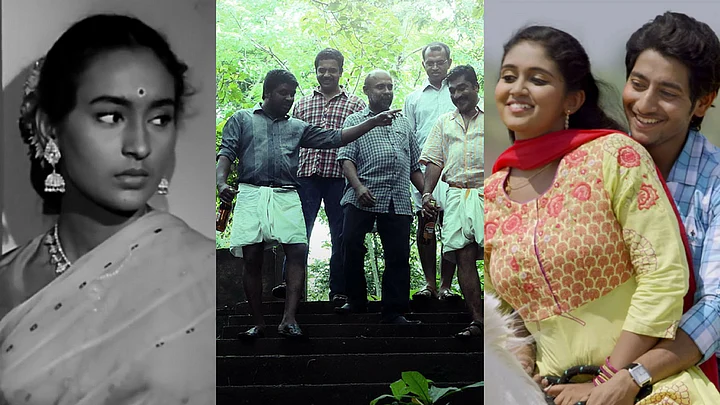Caste violence has long been part of India’s socio-political fabric, thanks to deeply ingrained prejudices and ruthless manipulation by ruling parties. But, no matter how complicated and controversy-ridden that the theme is, it doesn’t find much of a place in our mainstream movies (a notable exception being the 1936 film Achhut Kannya, which was perhaps the first film on the subject and starred Ashok Kumar and Devika Rani).
It’s not so with parallel cinema however, some of which have over the years portrayed caste prejudices, and the immense suffering it causes, with dexterity. As a new wave of protests against caste politics rocks the country, let’s take a look at some of memorable cinematic portrayals of the issue:
Sujata (1959)
Language: Hindi
The Bimal Roy classic brings the caste problem on to the microcosmic canvas of a closely-knit family, which grapples to deal with the “untouchable” girl (Nutan) they gave shelter to and brought up as their own daughter. Subtle and enriched by the visual poetry that’s Roy’s forte, Sujata explores the emotional fallout of caste prejudices at a very personal level and how people choose to toe them despite their hearts telling them otherwise.
Ankur (1974)
Language: Hindi
Shyam Benegal’s first feature film, starring Shabana Azmi and Ananth Nag, not only won three National Awards, but was also a layered, complex depiction of power play vis-a-vis caste politics in a village. The story of an upper caste landlord seducing and impregnating a Dalit woman, rejecting her and then whipping her husband resonated with millions of suppressed Indians through the ages. But keep your eyes peeled for that last scene in which a little boy throws a stone at the landlord’s glass window - it’s an echo roaring across the country today.
Damul (1985)
Language: Hindi
Set in the heartlands of Bihar, Prakash Jha’s Damul showcases the visceral abuse and dehumanisation that occur in the name of caste. Revolving around a bonded-to-death low-caste labourer who’s forced to steal for his landlord, it explores the tussle for power between Brahmins and Rajputs as both trample the low caste ghetto, even trying to prevent them from migrating to other states. A grim and true portrayal, this.
Aarakshan (2011)
Language: Hindi
Carrying the casteism dialogue forward, Jha’s Aarakshan is one of the rare mainstream Hindi films to tackle the topic. Armed with Bollywood A-listers, the film explored the much-debated, controversial policy of reservation in education and employment for backward classes.
Fandry (2013)
Language: Marathi
‘Fandry’ in Marathi means ‘pig’ and Nagraj Manjule’s first film was a visceral portrayal of how some people in our country are treated as just that. Fandry revolves around a 13-year-old boy who is drawn to studies and an upper caste girl, despite belonging to a family which subsists on menial jobs and the brutalities of a highborn, privileged community. At the end of this film, the boy on screen reflects the rage you feel within.
Masaan (2015)
Language: Hindi
Set in modern day Varanasi, one of the strands of Neeraj Ghaywan’s Masaan tells the story of Deepak, a boy from the Dom community who has grown up helping people burn funeral pyres because of his caste. Showcasing how aspiration and education can join forces to offer a better life despite societal pressures, it is indeed a tale of hope against all odds.
Ozhivudivasathe Kali or An Off-Day Game (2015)
Language: Malayalam
There’s just one word for Sanal Sasidharan’s Ozhivudivasathe Kali - chilling. Subtle, powerful and loaded with brilliant visual metaphors, the film tells the tale of five middle-aged men who gather for a day of boozing in a bungalow in the middle of nowhere on election day. Caste is barely mentioned between the men, but even as CPM comes to power in Kerala, a horrible game plays out in the house. Don’t miss this one.
Sairat (2016)
Language: Marathi
Going mainstream with his second Marathi film - if you call a contemporary retelling of the Romeo-Juliet story with fantastic music - Nagraj Manjule made sure Sairat was watched by a much larger audience than Fandry. And he made sure to drive the implications of caste violence home. With subtle subversions like the lower caste partner being fairer and brighter than the upper caste one, and a punch-in-the-gut ending, this film made waves and hopefully, helped change some hearts and minds somewhere.
(At The Quint, we question everything. Play an active role in shaping our journalism by becoming a member today.)
